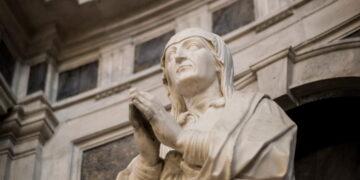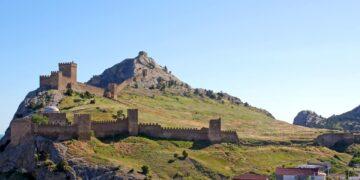Contents
Questo articolo è disponibile anche in:
The highly anticipated Games of the XXXIII Summer Olympics will be held from July 26 to August 11. The city ready to host the rich program of sporting contests in 2024, with over 200 countries competing, will be the romantic Ville Lumière, the capital of France.
In the Paris 2024 calendar, published by the Organizing Committee, 19 intense days of Olympic competitions have been announced. In fact, during the three summer weeks, 329 events will take place, for a total of 39 sports, including the new discipline of break dancing, which will make its debut in this edition of the Olympics.
These Games will reveal many surprises, starting with the inauguration ceremony, which will be held outdoors along the city’s main river artery, the Seine, and continuing with the peculiar design of the Olympic medals, which will contain a “little piece” of the Eiffel Tower.
Furthermore, the appointment with sport will continue beyond August 11th. After a short break, the XVII Summer Paralympic Games will be inaugurated and will keep spectators from all over the world glued to the screens from August 28 to September 8, with 22 disciplines competing.
Each edition of the Olympics, held every four years, is a hymn to inclusiveness, hard work, and healthy competition, but has this always been the spirit of the Games? With a thousand-year history behind it, the Olympics have undergone important changes to become “modern”. We therefore propose a small journey back in time with the aim of retracing the main historical stages of the Olympic Games, after which some curiosities about the symbols of the Olympics and the next summer edition in Paris will be revealed.
The Olympics: a leap into the past of 3 millennia
The Olympics were born in Greece, about 3000 years ago. However, they were not the only Games known at the time. Among the sports festivals, named classical games, four were the main ones: the Delphic games dedicated to the god Apollo, the Isthmian games in honour of Poseidon, and the Nimean and Olympic games dedicated to the cult of Zeus. Among all, those held in Olympia, the “olympics” in fact, were the most famous.
Therefore, originally, the Olympic Games were sporting celebrations in honour of the gods. Celebrated every 4 years, their religious importance was such that war conflicts were suspended during their progress. This practice was known as “Olympic Truce”.
Initially, the duration of the Games was very short. They took place over the course of one day, as there was apparently only one foot race competition. Over the years, however, the duration was extended to more days with the introduction of new sport competitions, such as: long jump, discus throwing, equestrian and wrestling competitions.

The participating athletes were men and competed naked. Additionally, most were professionals training full-time for the event. The stakes, in fact, were high: rich prizes, numerous benefits and glory were expected for the winners. An indispensable requirement, in addition to the gender one, to participate in the Games was to be Greek, including the inhabitants of the Italian, African and Near Eastern colonies under the Greek rule.
Women were not allowed to participate in the Olympic Games. Nonetheless, it is recorded that they could compete in Sparta, as well as in Olympia, on the occasion of the festival dedicated to the sacred goddess Hera.
The golden age of the Olympic Games suffered a strong shock with the affirmation of Roman power from the mid of the 2nd century BC. Their devotion to the games was very different: if for the Greeks, these were serious competitions, for the Romans they were only “performances” destined to entertain the public. The Olympic Games increasingly lost their importance, until they were finally abolished in 393 AD by the Roman Emperor Theodosius I.
Pierre de Coubertin and the modern Olympics
It was not until the end of the 19th century that the Olympics Games could be held again, after more than 1500 years of interruption. Thanks to the strong push of Pierre de Coubertin, a French baron in love with sport and deeply fascinated by the ancient Greek Games, the first modern Olympics were celebrated in 1896.

They were held in Athens, in homage to the cradle where the Games were born, and 13 countries participated. The Olympics, however, were reinstated with new rules, embodying first and foremost the principles of brotherhood and peace between peoples. Thanks to de Coubertin, the motto and ideals of Olympia were reborn, but at the same time, its horizons broadened.
The Games were open to athletes from all over the world, to participants of all sexes, social classes, religions, origins, and political beliefs. In addition, Pierre de Coubertin pushed for each country to have the right to host the different editions of the Olympics, previously held only in Greece. This alternation would have strengthened the spirit of friendship between nations, one of the fundamental values of the Olympic Games.
Furthermore, the desire to make the Games even more inclusive was the reason behind the birth of the Paralympics in 1960 (held in Rome), dedicated to disabled athletes. A few decades earlier, the first Winter Olympic Games, dedicated to snow and ice sports, were also inaugurated in Sapporo (1924).
The symbols of the Olympic Games
Among the merits of the founder of the modern Olympic Games and the IOC (International Olympic Committee), there is also that of having created the symbol par excellence of the Olympics: the famous white flag with coloured rings. This was officially adopted at the 1920 Antwerp Games. It represents unity between all nations, in line with the principles of the Games. The colours of the five intertwined rings, in fact, reflect those present in national flags around the world, but there are also versions according to which the rings, instead, represent the five continents.

In addition to the flag, the first half of the twentieth century also introduced other key symbols and rites linked to the event. Among these, mention must be made to the Olympic flame, introduced in 1928, and the torch relay, in 1936. The latter, as is well known, consists of carrying the Olympic flame from Olympia to the venue where the Games are hosted, and emphasizes the ancient and primordial bond of the Games with their native Greek cradle. The Olympic flame, lit during the opening ceremony, remains so for the entire duration of the sporting competitions, and symbolizes peace as well as the sacrifice of the athletes.
Waiting for Paris 2024
Paris has a strong connection with the Olympics. The French capital was the place that welcomed the founding fathers of the Olympic Movement. Pierre de Coubertin’s organization was born here: the IOC (Comité International Olympique), which today has its headquarters in Lausanne, Switzerland.
Paris 2024 vision reads the following: “Sports celebrations will take place along the Seine, from the new Olympic Village, located just 15 minutes from the centre of Paris to the monuments of the city center, such as the Eiffel Tower and the Grand Palais.” The scenario that will host the Games will therefore be memorable. It will be the first time in the history of the modern Summer Olympics that the opening ceremony will not take place in a stadium.
Over 13 million tickets on sale for both the Olympic (almost 10 million) and Paralympic Games (around 3 and a half million), for an expected revenue of 1.2 billion euros. Prices range from 50 to 100 euros on average to attend sports competitions, while for the opening and closing ceremonies the costs can reach up to 500/600 euros.
News from the next Olympic Games
The surprises that the XXXIII edition of the Summer Olympics has in store are many, starting with sport. The great debut of break dancing, or breaking, will take place in Paris. Thus, this discipline will make its official entry into the Olympic Games in 2024. The break dance competitions will include individual challenges, divided by gender, of 16 B-Boys and 16 B-Girls.

Furthermore, some of the sports that debuted during the last edition of the Tokyo 2020 Games will return, namely: surfing, climbing and skateboarding. Instead, karate and baseball/softball competitions, also introduced by the latest Olympics, will not be held this time.
Another curiosity about the Paris 2024 Games is linked to the Olympic medals. These will, in fact, contain a piece of metal that previously belonged to the symbolic tower of Paris: the Eiffel Tower. It will be set in the central part of each medal (bronze, silver, and gold), maintaining its original greyish colour. Naturally, this special metal was not specifically taken for the occasion from the Eiffel Tower, which would have given rise to a big scandal, but rather one removed from a previous restoration dating back to 1889 and preserved since then.

The next Olympics have already created great expectations. Before July 26th all that remains is to wait with trepidation for the last months and prepare to cheer on the old and new athletes, always keeping alive de Coubertin’s motto: “The important thing is not to win, but to participate”.





















